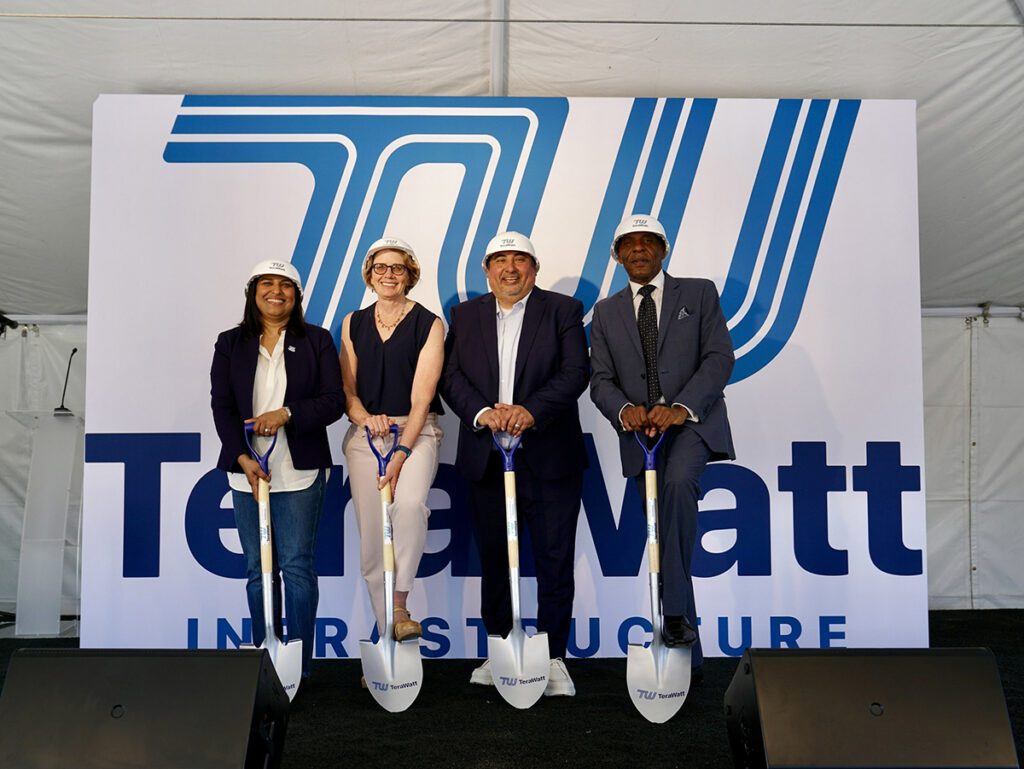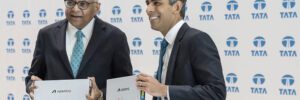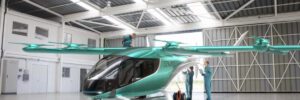The two beasts were spotted on a highway, accompanied by another Tesla Semi.
Source: Electric Vehicle News
Electric Vehicle News
Jaguar I-Pace Battery Class Action Lawsuit: LG Chem Batteries Again?
Jaguar Land Rover North America is facing a class action lawsuit regarding its electric I-Pace due to faulty battery packs.
Source: Electric Vehicle News
GM Releases Cadillac Escalade IQ Design Sketches, Execution Seems On Point
Apart from the rear end, the rest of the design appears true to the sketches.
Source: Electric Vehicle News
Bosch Rolls Out New Locking Update To Kiox E-Bike Display
Simply removing the Bosch Kiox 300 and 500 screens can now automatically lock the motor.
Source: Electric Vehicle News
Toyota Contemplates Land Cruiser’s Future: BEV, PHEV, Fuel-Cell Options Open
The iconic SUV’s current powertrains aren’t futureproof.
Source: Electric Vehicle News
2023 Genesis Electrified GV70 Review: Battery-Powered Beauty
Genesis brings the fight to BMW and Cadillac with its own crossover EV, and it does so successfully.
Source: Electric Vehicle News
DoD to award $37.5 million to Graphite One for graphite mining and processing in Alaska
Using funds appropriated by the Inflation Reduction Act, the Office of the Assistant Secretary of Defense for Industrial Base Policy will award US mining company Graphite One $37.5 million to support development of a graphite supply chain solution based at the company’s Graphite Creek deposit on the Seward Peninsula about 37 miles north of Nome.
The grant follows the designation of graphite by the Defense Production Act as a battery material “essential to national defense.” The US is currently completely dependent on imported graphite; China is the leading producer.
The proposed Graphite One project is a vertically integrated enterprise to mine, process and manufacture anode materials primarily for the lithium‐ion EV battery market. Initial processing into concentrate at a plant adjacent to the mine would be followed by the manufacture of natural and artificial graphite anode materials and other value‐added graphite products from the concentrate and other materials at a proposed facility, expected to be located in Washington State. Plans also call for a co-located recycling facility to reclaim graphite and other battery materials.
“This Department of Defense (DoD) grant underscores our confidence in our strategy to build a 100% US-based advanced graphite supply chain—from mining to refining to recycling,” said Anthony Huston, founder and CEO of Graphite One.
Source: Department of Defense
Source: Electric Vehicles Magazine
TeraWatt Infrastructure breaks ground on public EV charging hub for fleets near LAX
TeraWatt Infrastructure recently hosted a groundbreaking event for a new charging site for light-duty EV fleets in Inglewood, California. The site will feature 26 DC fast chargers, along with amenities for drivers. It’s slated to be operational in early 2024.
The charging hub benefited from a $1.9-million California Energy Commission grant in support of ride-hail electrification. Its location near Los Angeles International Airport is likely to ensure a steady stream of business from ride-share drivers and other commercial users.
As California gradually phases out legacy ICE vehicles, charging hubs for commercial EVs will be an essential part of the ecosystem, but most fleet operators aren’t in a position to build out the necessary infrastructure themselves. As CEO Neha Palmer explained to Charged in a 2021 feature article, TeraWatt has the real estate, the utility connections and the charging expertise to offer a turnkey solution for charging infrastructure and services, enabling fleets to make a seamless transition to EVs. (WattEV, which focuses more on medium- and heavy-duty EV fleets, recently opened a similar charging hub at the Port of Long Beach, and has secured funding for two more.)

“Our goal is to provide a seamless charging solution with both infrastructure and services so that fleets can more rapidly accelerate their electrification efforts,” said CEO and co-founder Neha Palmer. “The move to EVs is happening now, not just for consumers, but for fleets. The Inglewood charging site is the first of many infrastructure build-outs that will enable businesses to holistically adopt a sustainable transportation strategy.”
Source: TeraWatt Infrastructure
Source: Electric Vehicles Magazine
Tata Group to build 40 GW battery gigafactory in the UK
Tata Sons, a subsidiary of the sprawling Tata Group, plans to invest over £4 billion to build a 40 GW battery cell gigafactory in the UK. The facility will produce cells for EVs and stationary storage solutions for the UK and European markets. Production is to start in 2026, and JLR and Tata Motors will be anchor customers.
Tata intends to maximize the renewable energy mix at its new gigafactory, and has announced its “ambition” to use 100% clean power. “The plant will employ innovative technologies and resource-efficient processes like battery recycling to recover and reuse all the original raw materials to deliver a truly circular economy ecosystem.”
N Chandrasekaran, Chairman, Tata Sons, said: “The Tata group is deeply committed to a sustainable future across all of our business. Today, I am delighted to announce the Tata group will be setting up one of Europe’s largest battery cell manufacturing facilities in the UK. Our multi-billion-pound investment will bring state-of-the-art technology to the country, helping to power the automotive sector’s transition to electric mobility, anchored by our own business, Jaguar Land Rover.”
Source: Battery Tech News
Source: Electric Vehicles Magazine
Nidec and Embraer to jointly develop an electric propulsion system for the aerospace industry
Japanese electric motor manufacturer Nidec and Brazilian aircraft manufacturer Embraer have established a joint venture (JV) company, Nidec Aerospace, to develop electric propulsion systems for the aerospace sector. Nidec will own a 51% share of the JV and Embraer will own the remaining 49%.
The newly-established company will develop and manufacture the electric propulsion system for eVTOL vehicles, with the aim of providing the system to non-eVTOL vehicles in the future.
Nidec Aerospace’s launch customer will be the eVTOL manufacturer of Eve Air Mobility.
“Technological innovation will be a key contributor to the International Civil Aviation Organization’s (ICAO) commitment to carbon neutrality by 2050, making Nidec Aerospace a natural extension of both companies,” said Michael Briggs, Senior VP and President of the Motion & Energy Business Unit at Nidec.
Source: Nidec
Source: Electric Vehicles Magazine





